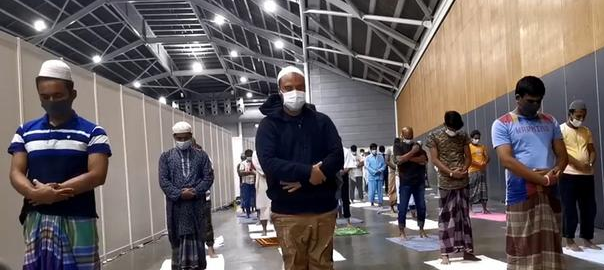Medically reviewed by Dr. Muhammad Ashraf Shera.
This year the month of Ramadan is being observed under very specific circumstances. The coronavirus pandemic has forced Muslims all over the world to adjust Ramadan practices according to safety guidelines issued by governments. The World Health Organization (WHO) has also issued specific guidelines on fasting safely during the pandemic. In this article, we talk about whether it is safe to fast during COVID-19 pandemic and how you can ensure that you and your family are protected whilst fulfilling religious obligations.
Is it safe to fast during the coronavirus pandemic?
Dr. Salman Waqar, an academic clinical fellow at the University of Oxford, says, “If you are healthy and have previously fasted during Ramadan without issues, there is no evidence to suggest you cannot fast this time round either, should you wish to.” However, he strongly suggests that those who are ill or experiencing complications in their health should refrain from fasting. He states that the biggest risk of fasting in the present circumstances is dehydration. If one starts to feel feverish, they should drink water immediately and get in touch with doctors.
WHO has also warned high risk groups to take special care in their fasting routines. It is advised that if they start to feel ill, they should break the fast and consult doctors immediately.
What should you eat for sehri and iftar?
The World Health Organization (WHO) advises that Ramadan diets should be rich in fresh vegetables, fruits and unprocessed foods. Eating healthy foods is extremely important in making sure that your body stays strong and can fight off disease. This means you should swap fried oily foods that are usually eaten at iftar for more healthier options. It is also important to drink plenty of water to avoid dehydration.
How to maintain physical distance
According to the WHO, Ramadan should be observed with particular attention towards physical distancing. Therefore, you should avoid crowded mosques and prayer groups. It is safer to offer prayers at home. It is also wise to avoid social gatherings for iftar. To control the spread of coronavirus, it is important that to recognise the need to have iftar in small groups, preferably with people who live in the same house.
If you do go to the mosque or other religious gatherings, make sure you are at least two meters away from other people and remember to take your own janamaz or prayer mat. Moreover, practice good hygiene. It must be mentioned, however, that WHO has advised people to opt for virtual religious gatherings in order to stay safe. If you have friends or family in high risk groups you should urge them to not attend religious gatherings.
I hope this article helps you fast safely this Ramadan. All the information has been derived from WHO mandated guidelines. If you have more questions, please write to us in the comments below.






